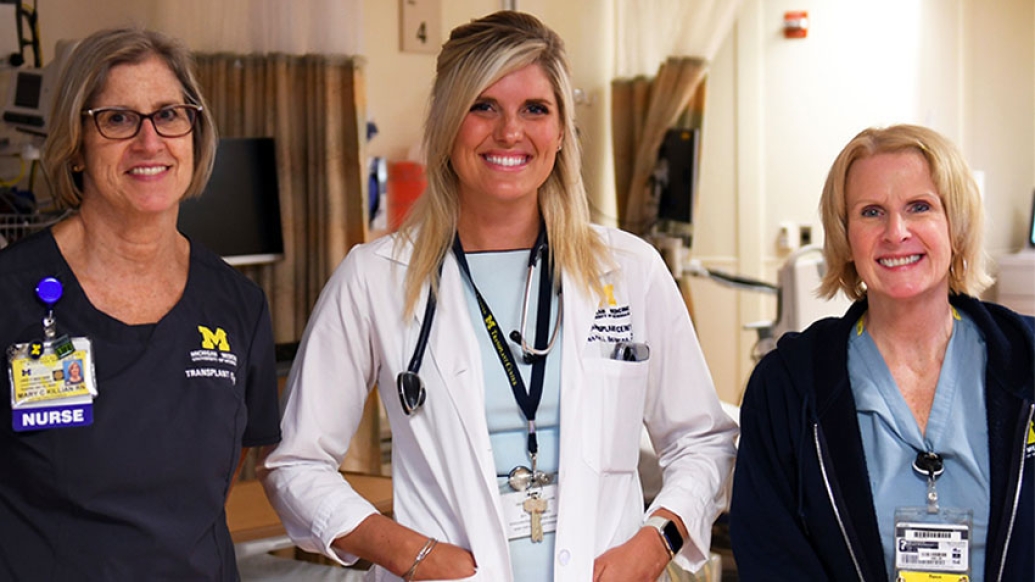The establishment of a clinic specific for patients with limited liver functionality improves wait time for patients and alleviates the emergency department.
10:00 AM
Author |

For years, Elliot Tapper, M.D., and his colleagues noticed a trend among their patients. Those who recently had liver transplants or were diagnosed with cirrhosis often came to the emergency department due to routine side effects.
"Many times, when your liver has limited functionality, you are unable to adequately drain fluids from your abdomen, causing swelling," said Tapper, who is the director of the University of Michigan's Cirrhosis Program. "Not only does this cause you to become uncomfortable, but it has the potential to make you very sick."
That led patients to come to the ED — where they were likely to be admitted to see a specialist who could help drain the fluid.
MORE FROM THE LAB: Subscribe to our weekly newsletter
Tapper, however, thought that such a step was unnecessary.
"What we have learned through quality and safety research is that draining fluid doesn't have to lead to a hospital admission," Tapper said. "Many times, we can do it in just a couple of hours, observe the patient and then send them home where they can rest comfortably."
That's why his team created a new model of care — an urgent care clinic to treat liver transplant and cirrhosis patients who need immediate assistance. It's a plan that is achieving better outcomes and higher patient satisfaction rates than ever before.
Limited liver functions
Cirrhosis is the scarring of the liver caused by disease or other conditions, such as excessive alcohol consumption. Often, it causes the liver to be unable to carry out its functions — such as cleaning toxins out of the blood or creating proteins that assist in digestion, blood clotting and other essential tasks. This can lead to feelings of fatigue, nausea, loss of appetite and more.
Those who recently had a liver transplant often have similar symptoms as the liver works its way back to full functionality.
"It's not uncommon for these patients to need expert care on short notice," Tapper said.
But according to Tapper, the Emergency Department is not the best choice for them.
"Our colleagues in the ED do an incredible job treating patients with all sorts of ailments," Tapper said. However, as a result, there is often a long wait to be seen by a specialist, making it more logical for emergency personnel to refer liver patients for admission to receive treatment.
"If we can avoid that 'typical' plan and treat liver patients ourselves in a separate clinic," Tapper said, "we can help alleviate congestion in the Emergency Department, open up inpatient beds for our organization to accept patients who need a higher level of care and get our own patients home as soon as possible."
Putting the wheels in motion
So, a few years ago, Tapper and others around him worked on a plan for a new urgent care clinic. The idea was for a physician assistant to work with a team of nurses on the first floor of Taubman Center who could call in physicians if needed.
While COVID-19 put the plans on hold for a couple of years, the clinic opened almost six months ago with Carrie Bergmans, PA-C, leading the team and Tapper acting as the head physician.
The clinic is open during normal business hours.
"If patients call in the morning, we can see them that afternoon," Tapper said. "And if they call late in the afternoon, we can see them the next morning. It's a process that has really worked for us — and for our patients."
A model for others
Tapper said he thinks the urgent care clinic could work as a model for other areas of the hospital.
"There are patients all over Michigan Medicine who may need acute care, but initially go to the ED before being transferred to a subspecialty," Tapper said. "This cuts out that middle step and allows the emergency team members to do what they do best."
At the end of the day, Tapper says three measurements will determine how effective such a clinic will be.
"First, is the clinic protocol safe for patients? Yes. Are our patients satisfied? They are. And do they stay out of the hospital? The answer to that is overwhelmingly 'yes,'" Tapper explained. "We're excited for our clinic to gain more traction and more referrals so we can continue to provide better care for those who need it."
This article was additionally reviewed by Allison Mi.
Live your healthiest life: Get tips from top experts weekly. Subscribe to the Michigan Health blog newsletter
Headlines from the frontlines: The power of scientific discovery harnessed and delivered to your inbox every week. Subscribe to the Michigan Health Lab blog newsletter
Like Podcasts? Add the Michigan Medicine News Break on iTunes or anywhere you listen to podcasts.

Explore a variety of healthcare news & stories by visiting the Health Lab home page for more articles.

Department of Communication at Michigan Medicine
Want top health & research news weekly? Sign up for Health Lab’s newsletters today!





